doTerra
TINA.org investigated doTerra International, LLC, a Utah-based multilevel marketing company that sells essential oils and supplements, and found that it used unsubstantiated disease-treatment claims, including claims that products could prevent and treat COVID-19, in marketing materials.
TINA.org has also investigated doTerra as part of a larger investigation into atypical income claims used by MLM companies. To read more about TINA.org’s 2023 MLM Income Claims Investigation, click here.
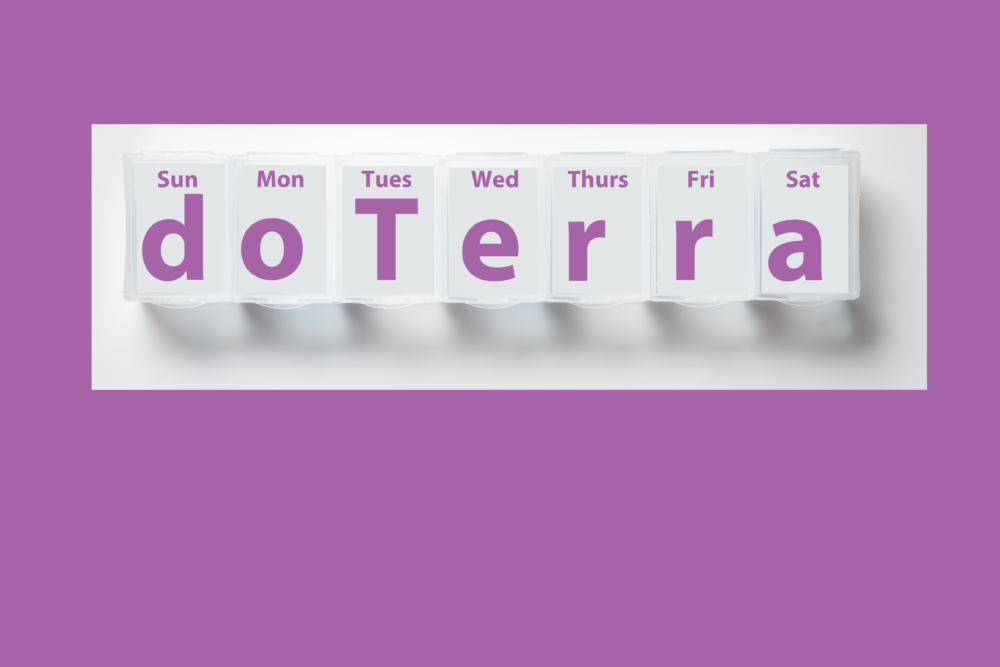
Highlights
- Filed complaint with the DSSRC
- DSSRC issued report finding unsubstantiated health claims and deceptive income representations
- Filed complaint with FTC
- Department of Justice filed civil lawsuits against several distributors
- Distributors ordered to pay civil penalties for making COVID-19 treatment claims
Timeline
2026
January 7
The DSSRC issues a fourth case decision regarding doTerra finding that the company continues to use atypical income claims to market its business opportunity.
2024
November 1
The DSSRC issues a case decision finding that doTerra uses atypical income claims to market its business opportunity and unsubstantiated health claims to market its products.
February 14
As part of its 2023 investigation into 100 MLM companies, TINA.org notifies doTerra of its findings that the company has used atypical income claims to market its business opportunity.
2023
January 6-23
doTerra distributors are ordered to pay civil penalties of $15,000 each in order to settle the Department of Justice’s charges that they violated the FTC Act and COVID-19 Consumer Protection Act.
January 5
The Department of Justice files civil lawsuits against several doTerra distributors for violating the FTC Act and the COVID-19 Consumer Protection Act by promoting doTerra products for the prevention and treatment of COVID-19.
2022
January 28
TINA.org files a complaint with the FTC after finding that several high-level doTerra distributors promoted products using unsubstantiated COVID-19 treatment and prevention claims.
2021
November 15
The DSSRC issues a press release stating that it has re-investigated doTerra and found that it is again using unsubstantiated health and earnings claims to market its products and business opportunity. According to the DSSRC, the company removed certain deceptive claims but designated some YouTube videos as private rather than remove them from publication. The DSSRC recommends that the videos be completely disabled.
January 15
The National Advertising Review Board (NARB) affirms the NAD’s determination and recommendations, which doTerra says it will comply with despite disagreeing with the decision.
2020
October-November
As part of its larger investigation of the 16 MLMs targeted by the FTC in April 2020 for making deceptive COVID-related claims, TINA.org finds that doTerra has continued to make unsubstantiated health claims and deceptive income claims.
October 16
The National Advertising Division (NAD), after investigating claims brought to its attention by S.C. Johnson & Son, Inc., determines that doTerra did not provide a reasonable basis for claims that its essential oils provide certain health benefits, including specific benefits for mood, emotions, and the mind. NAD also determines that the evidence in the record was not a good fit for the advertiser’s “Certified Pure Therapeutic Grade” claim. NAD recommends that doTerra discontinue the marketing claims at issue.
April 24
The FTC sends doTerra a warning letter regarding distributors’ use of social media posts that claim doTerra products can treat or prevent COVID-19 and misrepresents that consumers who become doTerra distributors are likely to earn substantial income.
April 7
The DSSRC issues a decision stating that doTerra distributors have been making unsubstantiated health claims, as well as deceptive income representations, to sell products and promote the doTerra business opportunity. The DSSRC recommends that the company cease using such claims, and states that it will “continue to monitor the messages disseminated by the Company salesforce on social media and will immediately initiate a compliance inquiry should it identify an ongoing proliferation of egregious, unsupported product or income claims disseminated by doTERRA and/or its salesforce.”
2019
October 16
TINA.org files a complaint with the DSSRC urging it to investigate doTerra’s unsubstantiated health claims and take action.
2014
September 22
The FDA sends a warning letter to doTerra for, among other things, marketing its products as unapproved drugs.
Featured
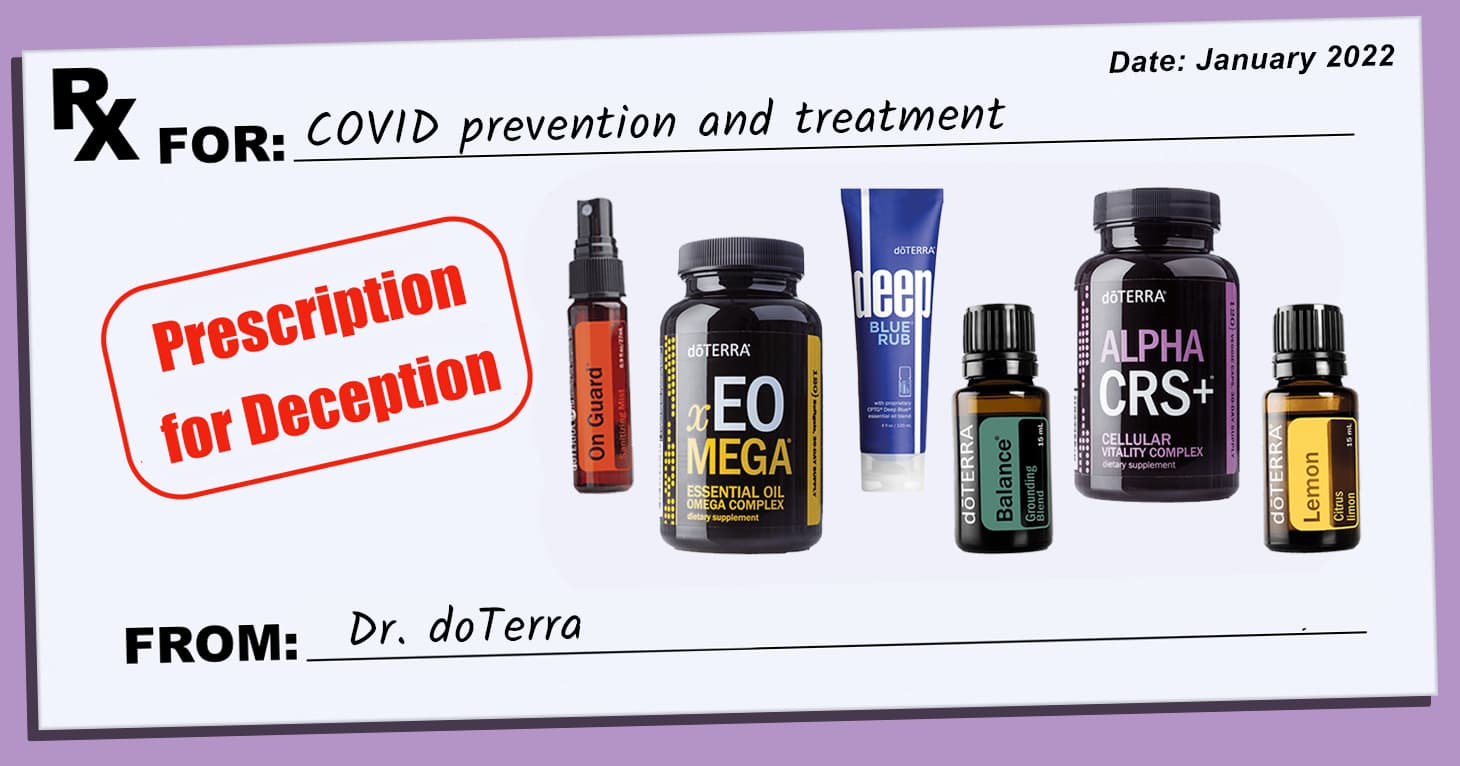
UPDATE: doTerra Distributors Ordered to Pay $15K Each Over COVID Claims
Civil penalties follow a 2022 TINA.org investigation and complaint to the FTC.
The Latest

Most Deceptive Ads of 2024
Here were some of the worst ads TINA.org investigated this year.
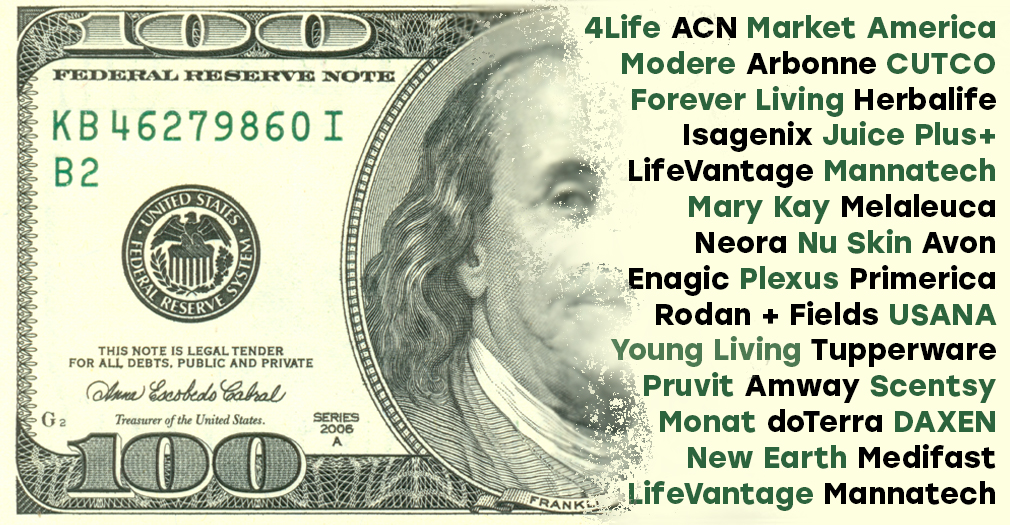
MLMs Continue to Recruit with Deceptive Earnings Claims
TINA.org investigation finds 98% of MLMs using misleading income claims.

DOJ Orders doTerra Distributors to Pay $15,000 Each after TINA.org Complaint
Complaints against additional distributors who hosted COVID webinars may be forthcoming.
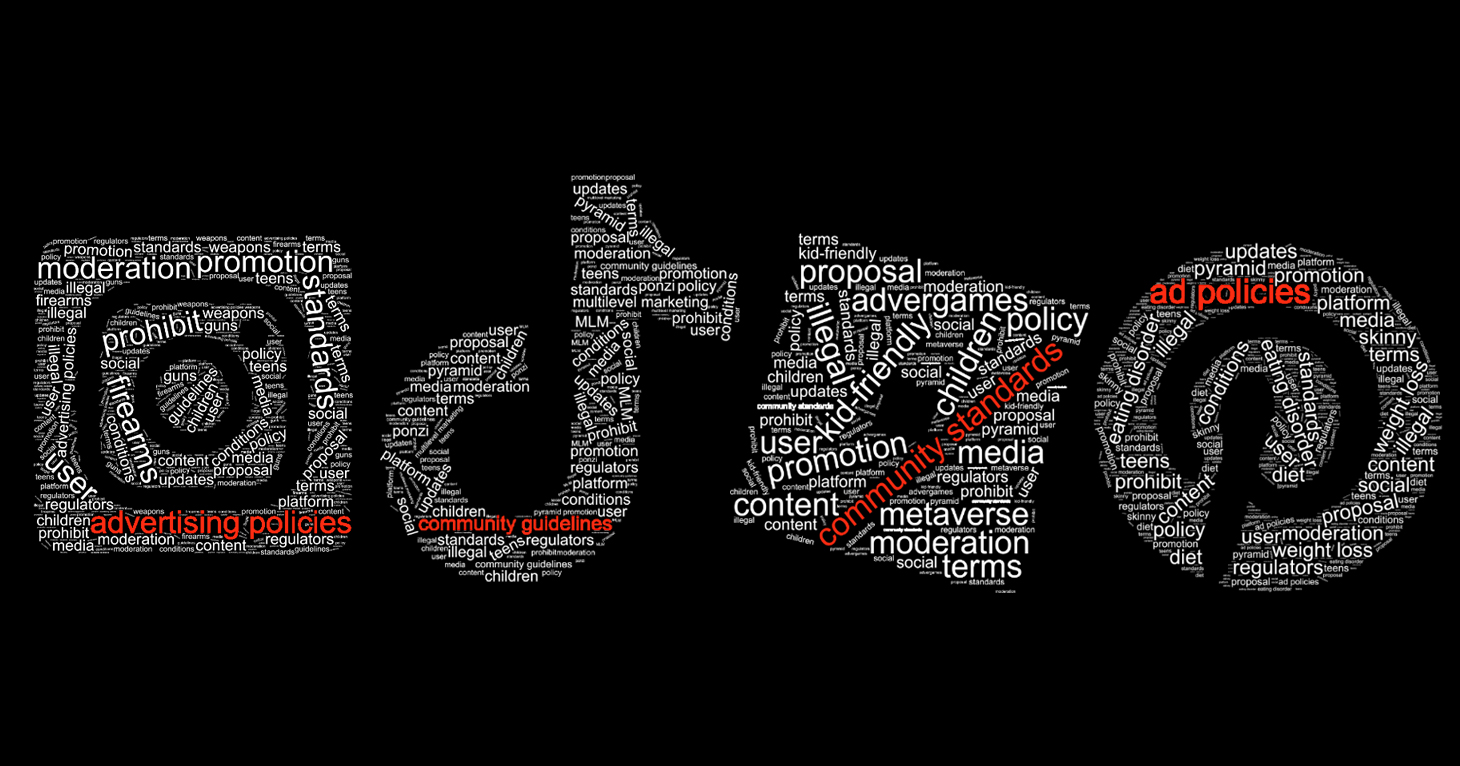
Touted but Toothless: The Problem with Some Tech Platforms’ Policies
Prohibited content slips through the cracks.
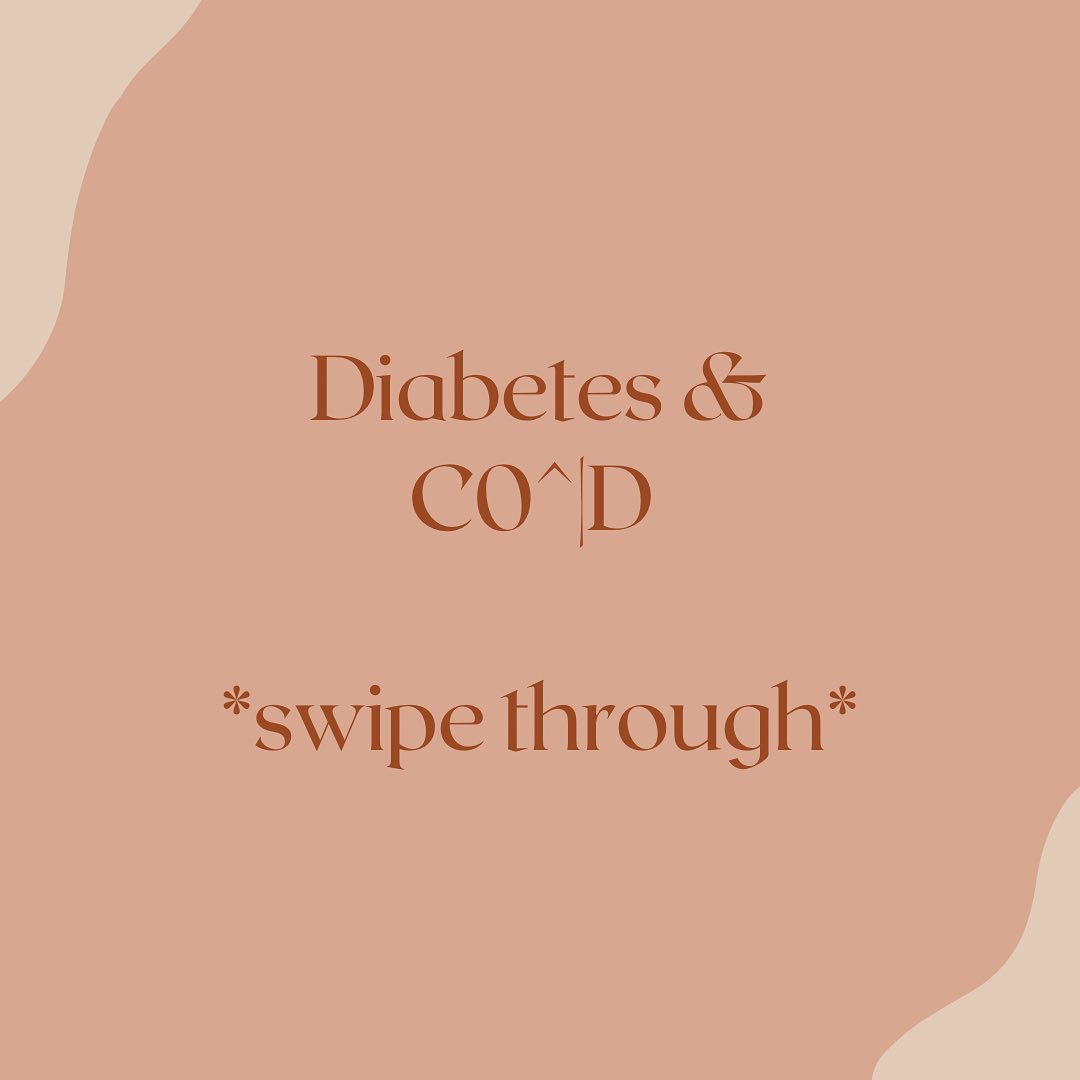
The Accidental Typo on Purpose
How deceptive MLMers try to evade regulators in the COVID era.

Young Living Distributor Violates Law with COVID Claims
TINA.org alerts regulator to unsubstantiated claims.

Snubbing FTC, MLM Claims It Can Prevent and Treat COVID-19
Of all the companies exploiting the pandemic, doTerra stands out as a steadfast recidivist.

MLMs Continue to Break the Law Despite FTC Warning
Deceptive health and income claims, including some tied to COVID-19, persist in wake of warning from the feds.

Time Freedom Is The New Financial Freedom
Why the MLM industry should avoid the term.

Regulatory Inquiries Put Essential Oils MLM doTerra on the Defensive
MLM’s health claims fail to stand up to an increased level of scrutiny amid a worldwide pandemic.